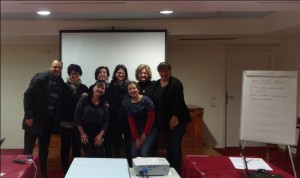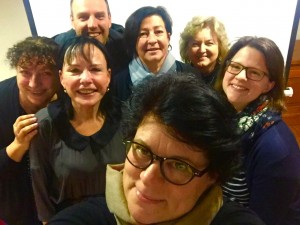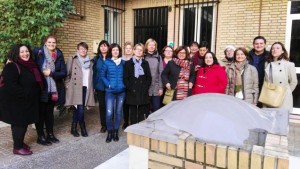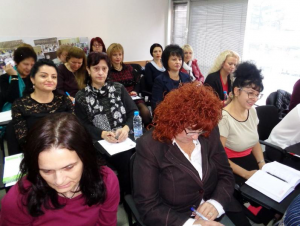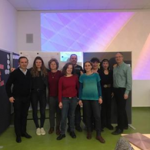 At the beginning of February 2019, the first project meeting of the ACTIMENTIA consortium was held in Münster, Germany.
At the beginning of February 2019, the first project meeting of the ACTIMENTIA consortium was held in Münster, Germany.
ACTIMENTIA – New Erasmus+ project
ACTIMENTIA 2018-1-DE02-KA204-005231 is an ongoing European collaborative project that has been funded with the support of the Erasmus+ program (KA2) of the European Union. It lasts from 2018 to 2021.
Multiplier event Hand in hand – health for all – project WHOLE
Imperceptibly passed the 3-year WHOLE project, which was launched in September 2016. During the past time, the project consortium consisting of different organizations from 6 European countries, inc. two universities, managed to carry out a variety of activities to develop and implement the project proposal tasks and to reach project goals.
WHOMEN Project – Joint staff training event on transversal competences and soft skills for women with fewer opportunities – Curriculum for training trainers
Transversal competences and soft skills for women with fewer opportunities – Curriculum for training trainers
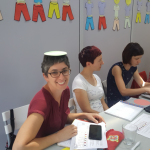 The curriculum serves the need to train adult education professionals for their work with women at risk of social exclusion and fewer educational opportunities. The training based on that curriculum should help the practitioners to support women with fewer opportunities to get aware of their transversal and social skills and to strengthen them with the aim to increase their chances of an adequate equal integration into the labor market. Continue reading
The curriculum serves the need to train adult education professionals for their work with women at risk of social exclusion and fewer educational opportunities. The training based on that curriculum should help the practitioners to support women with fewer opportunities to get aware of their transversal and social skills and to strengthen them with the aim to increase their chances of an adequate equal integration into the labor market. Continue reading
Last meeting project Senior Social Entrepreneuring – Srewsbury, UK
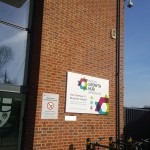 At the end of March 2018, the last meeting of project Senior Social Entrepreneuring was held. Host of the event was the UK partner organization – the University of Shrewsbury. During the meeting, the achievements reached by the consortium to date were discussed: developed portfolios with good local initiatives, good practices of social entrepreneurship from different European countries.
At the end of March 2018, the last meeting of project Senior Social Entrepreneuring was held. Host of the event was the UK partner organization – the University of Shrewsbury. During the meeting, the achievements reached by the consortium to date were discussed: developed portfolios with good local initiatives, good practices of social entrepreneurship from different European countries.
Whomen Assessment of Training Needs
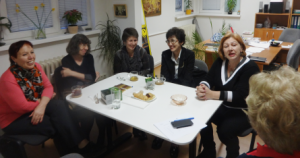 At Generations several meetings and discussions took place with different partners around a common topic: “Women at risk of social exclusion – what support and training do women aged 45+ need to best assure their adaptation to the new requirements of the labour market, that changed due to demographic and economic conditions?”
At Generations several meetings and discussions took place with different partners around a common topic: “Women at risk of social exclusion – what support and training do women aged 45+ need to best assure their adaptation to the new requirements of the labour market, that changed due to demographic and economic conditions?”
Project WHOLE – meeting in Patra, Greece
Ready information materials, an interesting website, a functioning online learning platform, pilot seminars organized by all partner organizations from the WHOLE consortium – these are undoubtedly good results of our work for the past 9 months, which were the basis of the discussions during the last project meeting in January 2018. This time hosts were colleagues from the ATOM Center, Patras, Greece.
Kick Off Meeting – Spain, Seville – 13 December 2017
The first international meeting happened on the 13th December in Sevilla. In this meeting, partners had 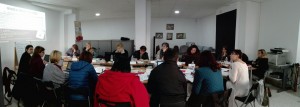 the opportunity to meet and overview the whole project plan, calendar, and task distribution.
the opportunity to meet and overview the whole project plan, calendar, and task distribution.
The next step will be the implementation of a research to better define women at risk of exclusion training needs.
After this protocol, guidelines and interactive resource platform will be developed and improved with the help of training courses for experts. In the final stage, the Protocol will be tested with a group of women and presented in specific dissemination activities in all countries.
National Council of the Bulgarian Nursing Association – presentation WHOLE project results
The Project WHOLE – Wellbeing and Healthy Choices for Older Adults and their Carers, 2015-1-DE02-KA204-002418 enters the last of its three years. Over the past two years, the project consortium has been working with great interest and diligence to achieve the goals set and to reach the final results described in the project proposal. After the initial studies in all countries on healthy eating and physical activity of elderly people, available training measures for formal and informal carers sought by the two target groups, information and wishes for future measures in these areas, two modules were developed – Healthy nutrition and Physical activity specially adapted for them. The Healthy Nutrition Module contains advice in this area based on the most common diseases of elderly people, and the Physical Activity module over 280 exercises, useful for both – the recipients and the caregivers.



